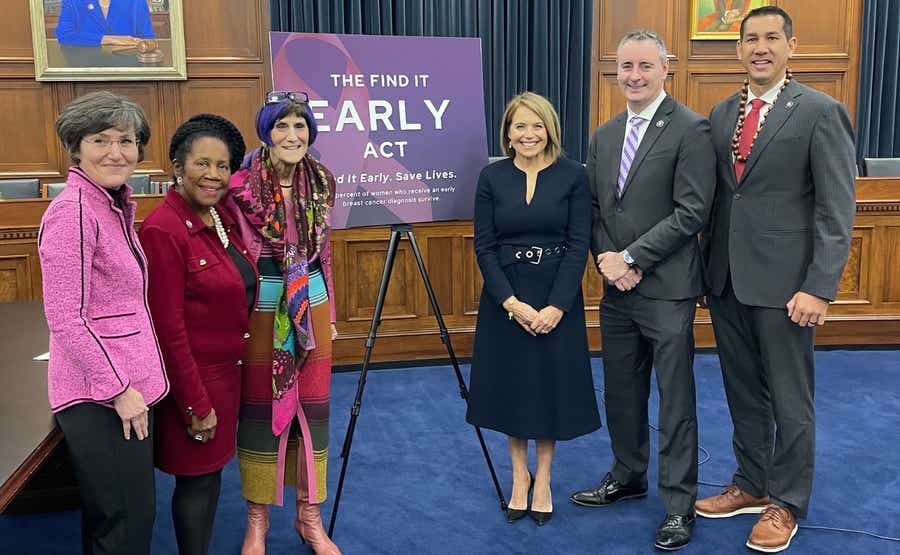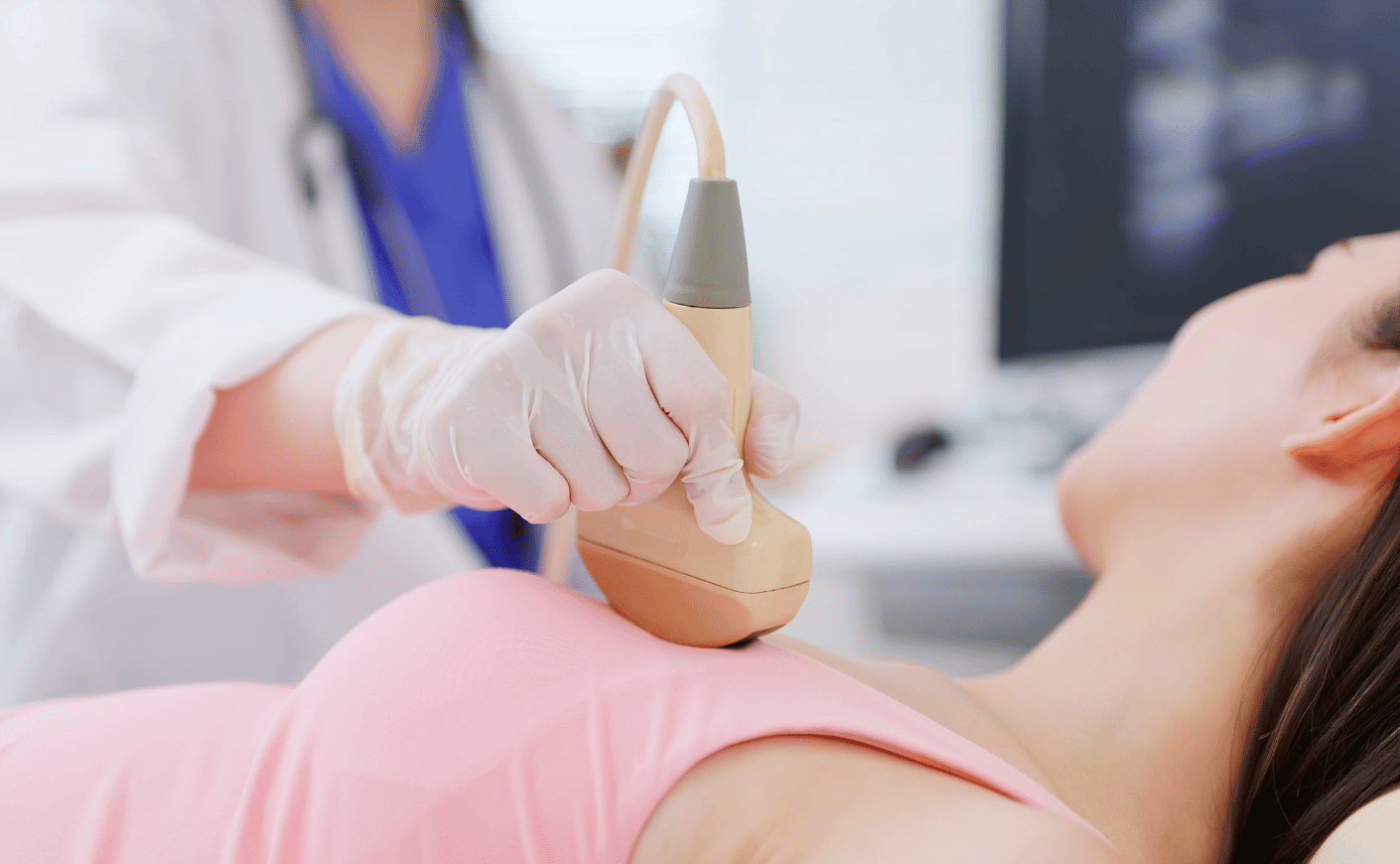Two lawmakers on opposite ends of the political spectrum are teaming up yet again to eliminate the financial barriers that keep far too many women from getting the breast cancer screening they need.
On Thursday, Democratic Rep. Rosa DeLauro of Connecticut and GOP Rep. Brian Fitzpatrick of Pennsylvania — with the support of our own Katie Couric — reintroduced the Find It Early Act. The legislation would require all health insurance plans to fully cover screening and diagnostic breast imaging with no out-of-pocket costs, including mammograms, ultrasounds, MRIs, and other follow-up tests doctors recommend when something looks unclear or concerning.
This would be a major shift for women with dense breast tissue — a group that includes nearly half of women over 40, according to the Centers for Disease Control and Prevention. Dense tissue not only raises breast cancer risk; it also makes tumors harder to spot on standard mammograms. That means many women need supplemental imaging like ultrasounds or MRIs, which can be expensive and are frequently denied by insurers. By removing those financial barriers, the Find It Early Act aims to catch cancers earlier, when treatment is far more effective.
Katie has been involved with this effort since the very beginning, standing with the lawmakers when they first announced the initiative in 2022, before it was formally brought before Congress in 2023.
"The Find It Early Act is a critical step toward improving access to these lifesaving screenings, and I am incredibly thankful to Congresswoman DeLauro and Congressman Fitzpatrick for joining with me in this effort to save millions of lives," Katie said.

For Katie, the issue is deeply personal. She was diagnosed with breast cancer in June 2022, despite having no family history of it. Dense breast tissue has long made her own screenings more complex, and supplemental ultrasounds have been part of her routine for years. That's why she’s been such a vocal champion of ensuring all women have access to the imaging they need, not just the imaging that insurers choose to cover.
“I feel incredibly fortunate that I was diagnosed early, but so many women find out too late,” explained Katie, who also co-founded the nonprofit Stand Up To Cancer. "Improving access and coverage for additional testing – especially for women like me, with dense breasts – will save lives.”
DeLauro similarly emphasized that early detection remains the most powerful tool in improving survival. “If we find it early, we save lives,” she said. And the data backs that up: When breast cancer is caught at the localized stage — meaning when it’s still confined to the breast — the five-year relative survival rate is over 99 percent, according to the American Cancer Society.
Fitzpatrick, whose mother and sister are both breast cancer survivors, echoed that urgency. He called the measure “a bipartisan effort to eliminate barriers that never should have existed in the first place.”
The bill would apply these coverage rules nationwide — a significant change from today’s patchwork of state laws governing what insurers must cover.
“Every day, women across this country skip or delay critical imaging because of cost,” Fitzpatrick said. “The Find It Early Act ensures every woman, regardless of risk or income, can access comprehensive breast screening with no cost-sharing.”
If the bill becomes law, it could mean fewer women skipping recommended scans — and more cancers being caught early, when treatment has the best chance of success. But first it needs to make it through committee review and gain additional co-sponsors to advance toward a floor vote. Whether other lawmakers act remains to be seen, but for millions of women, the outcome could be life-changing.









